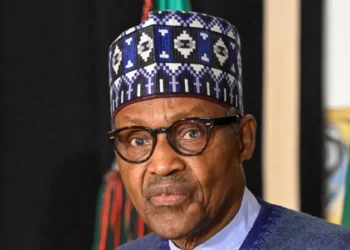Lome- ORAGROUP, the holding company of the African banking group in a press statement announced it has received EUR 40 million following the financing agreement signed with the Islamic Corporation for the Development of the Private Sector (ICD) in December 2017.
These funds will enable Oragroup, through its subsidiaries Orabank Togo, Orabank Gabon and Orabank Côte d’Ivoire (as well as Orabank Côte d’Ivoire branches in Burkina Faso, in Guinea Bissau, in Mali, in Niger and in Senegal), to finance, with the benefit of exclusivity, eligible projects from small and medium-sized enterprises (SMEs) operating in member countries of the ICD. The agreement takes the form of a Wakala contract between the ICD and each of the selected subsidiaries.
The Wakala contract is an agency agreement under which ICD will designate the Oragroup Subsidiaries to receive the financing as agent to act in its name and on its behalf under the Eligible Business Financing Program.
“Thanks to this new financing capacity, we will significantly increase our impact on the economic development of the region through job creation, local transformation leading to greater industrialization and value creation, as well as wealth redistribution.
SMEs are the key to inclusive growth and African economic take-off, yet they are for now underfunded by traditional banks. This program with the ICD will allow us to take another step to reach greater financial inclusion,” says Binta Touré Ndoye, CEO of Oragroup.
African SMEs represent 90% of the continent’s private companies. 70 to 80% of them are micro or very small businesses. But this widespread presence is not yet reflected in their weight in the economy.
It is estimated that SMEs represent between 20 and 30% of the GDP of African countries against about 60% in developed countries. Yet, if they were allowed to grow thanks to innovative financing tools, African SMEs could hold the key to employment, especially in rural areas where they are behind 70% of jobs creations. Only 6.4% of sub-Saharan SMEs report having access to bank financing. This compares to 27% in South-East Asia.
“We are pleased to start this partnership with Oragroup, a pan-African banking group that has developed real expertise to monitor and assess the risks associated with SME financing. It is also because we share the same convictions that we are proud of working with them. Financing the private sector in Africa is an unparalleled path to shared prosperity through wealth and jobs creation. We will continue to support the lenders that will enable the economic diversification and, ultimately, the industrialization of the continent,” says Salah Babale, Division Manager, Development Department of Financial Institutions at the ICD.
About Orabank
Through its ORABANK brand, ORAGROUP operates in 12 French-speaking countries of West and Central Africa (Benin, Burkina Faso, Chad, Côte d’Ivoire, Gabon, Guinea Conakry, Guinea Bissau, Mali, Mauritania, Niger, Senegal, and Togo) and in four monetary zones (WAEMU, ECCAS, Guinea Conakry, Mauritania). With 143 bank branches and more than 1,750 employees, Oragroup offers its clients, be it large national, regional and international firms, SMEs or private individuals – a wide range of banking products and services based on proximity and reactivity.
Oragroup strives to achieve financial inclusion by rolling out innovative solutions and focusing on previously neglected segments of the population. This commitment is reflected in its CSR approach which is an integral part of its strategy and is a priority of its governing bodies, focused on energy transition, environmental and social risk management, as well as the well-being of the public and its employees.
About the Islamic Corporation for the Development of the Private Sector
The Islamic Corporation for the Development of the Private Sector is a multilateral development finance institution, a subsidiary of the Islamic Development Bank Group (IDB). ICD fosters sustainable economic growth in its 53 member countries by financing private sector investment, mobilizing capital in the international financial markets, and providing advisory services to business and governments. ICD financing projects are selected on the basis of their contribution to economic development considering factors such as job creation, Islamic finance development, contribution to exports etc. ICD also provides advisory services to governments and private sector groups on policies designed to encourage the establishment, expansion and modernization of private enterprises, development of capital markets, best management practices and to enhance the role of the market economy. ICD operates to complement the activities of the IDB in member countries and also that of national financial institutions.









